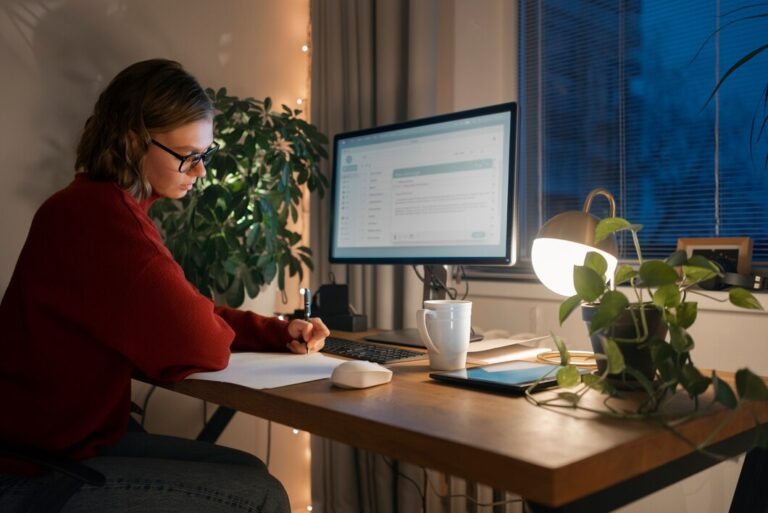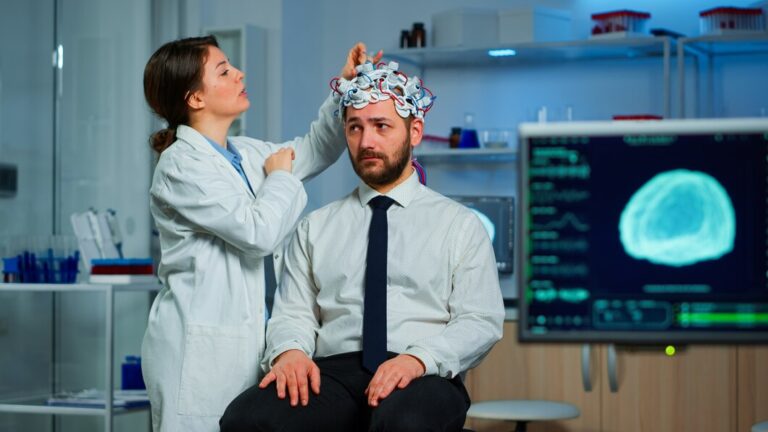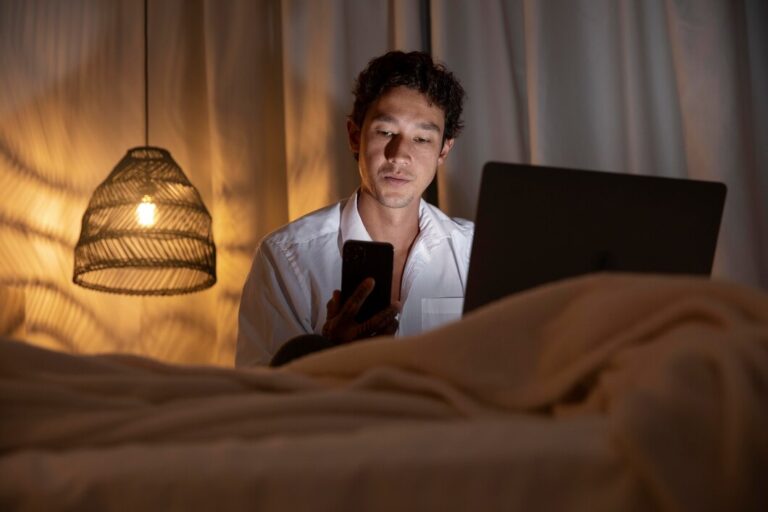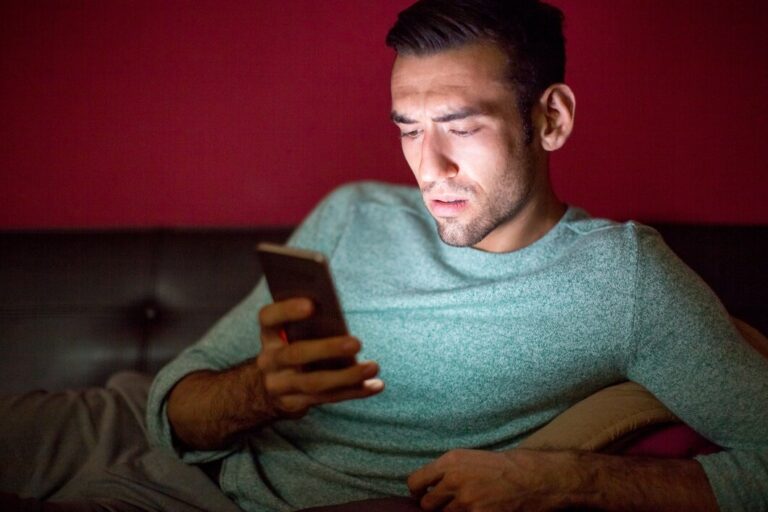
In today’s hyperconnected world, where digital screens follow us from the moment we wake up until the moment we fall asleep, tech-free evenings have become more valuable than ever. With smartphones buzzing nonstop, televisions glowing late into the night, and laptops dominating our final hours of the day, our minds rarely get the break they need to unwind.
This constant connection affects far more than our mental clarity—it deeply impacts the way we sleep. Research and real-life experience both show that reducing screen exposure before bedtime can dramatically improve sleep quality, enhance relaxation, and help you wake up refreshed. Establishing a digital detox for better sleep and building a consistent tech-free sleep routine may be the key to restoring natural restfulness in your life.
To understand why this shift matters so much, we need to explore how technology interacts with the brain, how evening habits shape sleep cycles, and how small changes to our nightly patterns can completely transform the way we rest.
The Overstimulated Mind: Why Evenings Matter More Than We Realize
Evenings were once a quiet time. Long before smartphones and laptops existed, nights involved dim lights, conversation, reading, gentle activities, and preparing the mind for rest. Today, however, evenings have become an extension of our daytime productivity. Many people use this time to catch up on emails, binge-watch shows, scroll endlessly through social media, or engage in stimulating online entertainment—activities that are anything but relaxing.
The human brain is not built for this level of stimulation right before sleep. Screens keep the mind alert at the very moment it should be winding down. In fact, the effects of screen time on sleep are surprisingly strong: exposure to artificial blue light suppresses melatonin, the hormone that signals the body to feel sleepy. When melatonin production falls, your natural circadian rhythm is disrupted, making it much harder to fall asleep or experience deep, restorative rest.
By embracing a nighttime digital detox, you give your mind permission to relax, process the day, and ease into a calmer state. This sets the foundation for better quality sleep and more energized mornings.

How Blue Light Disrupts the Sleep Cycle
To understand why tech-free evenings are so powerful, it’s important to explore the science behind blue light. Every digital screen—phones, tablets, computers, TVs—emits high-energy blue wavelengths. During the day, blue light is helpful because it boosts alertness. But at night, this same stimulation fools the brain into thinking it’s still daytime.
Here’s what happens:
- Blue light reduces melatonin production
- The brain remains in “wake” mode
- The circadian rhythm shifts later
- The body struggles to transition into deep sleep stages
- You wake up feeling tired, groggy, and unrested
This disruption doesn’t just affect how long you sleep—it affects how well you sleep. Even if you manage to get the recommended 7–8 hours, the sleep may not be restorative. Without enough deep sleep and REM sleep, the brain struggles to properly store memories, regulate emotions, and repair itself.
By creating a tech-free sleep routine, you eliminate the primary source of artificial stimulation in the evening. This alone can lead to measurable improvements in sleep efficiency, relaxation, and morning alertness.
How Tech-Free Evenings Improve Sleep Quality on a Physical and Mental Level
When you commit to reducing screen use before bedtime, your body and mind experience a chain reaction of benefits that directly support better sleep. Here’s how tech-free evenings create a powerful impact:
1. Improved Melatonin Production
Without blue light, melatonin rises naturally, helping your body transition smoothly into sleep.
2. Lower Stress and Cortisol Levels
Screens—especially social media and work-related devices—trigger stress. When cortisol is high, deep sleep becomes difficult. A digital detox for better sleep helps calm the nervous system.
3. Reduced Mental Stimulation
Even “relaxing” online activities require fast processing, attention switching, and reaction. Offline activities slow the brain down, allowing real unwinding.
4. Better Emotional Regulation
Evening screen use often exposes us to alarming news, triggering content, or social comparison. Tech-free routines protect your emotional space.
5. Enhanced Sleep Depth and Duration
Uninterrupted circadian rhythms support deeper sleep cycles, making the sleep you get more refreshing.
6. A Calmer Mind Before Bed
Quiet, screen-free evenings allow your mind to declutter. When the brain isn’t overstimulated, it’s far easier to fall asleep naturally.
Small adjustments—like turning off your devices one hour before bed—can lead to big improvements in how you rest each night.
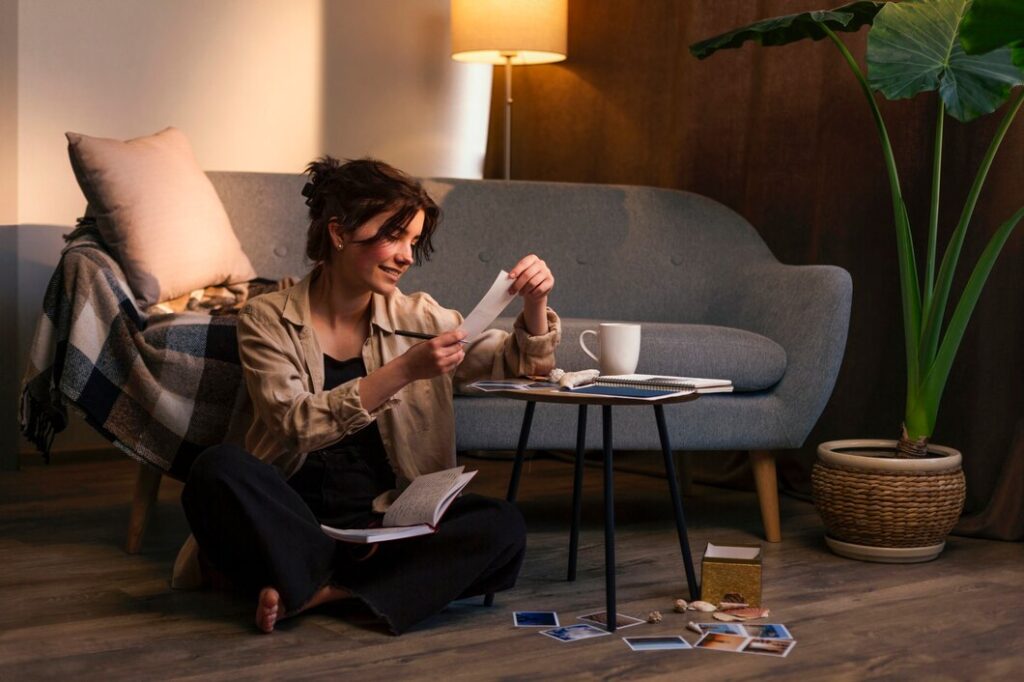
The Hidden Emotional and Psychological Benefits of Nighttime Digital Detox
Sleep doesn’t only depend on physiology. Your emotional state plays a huge role. Constant exposure to digital content can spike anxiety, overwhelm your thoughts, and keep your mind active long after you set your phone down.
A nighttime digital detox provides emotional and psychological relief in ways many people underestimate:
- It reduces overthinking
- It prevents information overload
- It reduces emotional triggers
- It helps stabilize mood before sleep
- It creates mental space for clarity and reflection
When the mind isn’t overstimulated by digital noise, your emotional landscape becomes calmer, making deep sleep more accessible. This is one of the reasons people who practice tech-free evenings often report waking up more refreshed, focused, and positive.
Why Scrolling at Night Is More Harmful Than Daytime Screen Use
Many people assume screen use is the same no matter what time of day it occurs. But nighttime screen exposure is uniquely damaging for one major reason: it occurs when the brain is naturally programmed to slow down.
At night, your body prepares for rest by lowering core temperature, reducing heart rate, and triggering melatonin release. But when you scroll late into the night, your brain receives the opposite message: stay awake, stay alert, stay stimulated.
This leads to:
- Difficulty falling asleep
- Poor sleep quality
- Shallow sleep
- Frequent waking
- Morning fatigue
- Long-term circadian disruption
This is why delaying screen time to earlier in the day—while keeping evenings as screen-free as possible—creates such dramatic improvements in restfulness.
Tech-Free Evenings Reconnect You With Natural Human Rhythms
Your body has ancient biological programming that expects certain patterns of light and darkness. Before electricity and digital devices existed, people naturally aligned their bedtime with sunset or low-light activities. Although society no longer functions this way, our biology hasn’t changed much.
Tech-free evenings help reestablish this connection by:
- Reducing artificial stimulation
- Mimicking the natural decline of daylight
- Supporting hormone regulation
- Encouraging slower, calmer evening routines
A tech-free sleep routine doesn’t require you to live like our ancestors—but it does help you honor your body’s natural rhythms, which are essential for restorative rest.
What a Tech-Free Evening Can Look Like: Simple, Calming, and Realistic
Tech-free doesn’t mean boring. In fact, it can be one of the most peaceful parts of your day. Here are enjoyable offline activities that support digital detox for better sleep while still offering relaxation and pleasure:
- Reading a physical book
- Listening to calming music
- Practicing journaling
- Stretching or gentle yoga
- Meditating or deep breathing
- Enjoying herbal tea
- Talking with family
- Taking a warm bath
- Preparing clothes or plans for tomorrow
- Doing a low-stimulation hobby like knitting, painting, or sketching
These activities reduce cognitive load, help you unwind, and set the stage for deeper rest.
Why Tech-Free Evenings Improve Morning Energy Levels
One of the most underrated benefits of nighttime screen-free habits is how much they improve the morning experience. When you enjoy deeper, uninterrupted sleep cycles, your body wakes up with:
- Higher natural alertness
- Better cognitive clarity
- More emotional stability
- Improved focus and motivation
- Less grogginess
- More sustained daytime energy
Instead of feeling dragged out of bed, you start the day aligned with your circadian rhythm. This leads to better productivity, sharper thinking, and a more positive mood.
Tech-Free Routines Help Break the Cycle of Sleep Debt
Sleep debt happens when poor sleep accumulates over time. Even missing 30 minutes nightly adds up. Screen-heavy evenings are one of the biggest contributors to modern sleep deprivation.
A consistent nighttime digital detox helps you:
- Fall asleep faster
- Avoid staying up “just 10 more minutes”
- Stop late-night social media spirals
- Remove emotional triggers that delay sleep
- Establish predictable nightly rhythms
When these healthy patterns repeat daily, sleep debt gradually decreases, and long-term rest improves dramatically.
The Link Between Late-Night Technology Use and Mental Health
The effects of screen time on sleep are only part of the story—technology also affects stress levels, mental health, and nighttime emotions. Late-night scrolling often exposes people to:
- Distressing news
- Social media comparison
- Work stress
- Overstimulation from entertainment
- Unfinished thoughts from conversations
- Online conflict or negativity
All of these increase mental activation at the very moment the brain should be calming down. This is why tech-free evenings often lead not only to better sleep quality, but also to better mental health over time.
The First Hour Before Bed: Why It Matters the Most
Sleep researchers often highlight the “golden hour”—the final 60 minutes before sleep—as the most influential period in shaping sleep quality. This hour should ideally be calm, predictable, and screen-free.
When you use this hour for tech-free routines, you send powerful signals to your brain:
- It’s time to unwind
- It’s safe to relax
- Sleep is approaching
- Hormones can shift naturally
In contrast, using screens during this hour floods the mind with sudden lights, sounds, and information, which disrupts every stage of sleep initiation.
How to Build a Tech-Free Evening Routine That Actually Works
Creating a nightly digital detox doesn’t require drastic lifestyle changes. Start with these simple strategies:
• Set a “digital curfew.”
Choose a specific time to turn off screens, ideally 60–90 minutes before bed.
• Charge your phone outside the bedroom.
This eliminates temptation and prevents late-night scrolling.
• Replace screens with soothing offline activities.
Reading, stretching, tea rituals, and journaling work wonders.
• Dim household lights.
Warm lighting supports melatonin production.
• Use paper instead of digital to-do lists.
This helps the mind settle.
• Create a sleep-friendly environment.
Cool room temperature, clean space, and cozy bedding can boost relaxation.
• Avoid stimulating conversations or arguments.
Your emotional state impacts sleep more than you think.
These small steps may feel simple, but they accumulate into profound long-term benefits.
What Happens When You Stick to Tech-Free Evenings for 30 Days
People who implement a consistent nighttime digital detox often experience:
- Faster sleep onset
- Deeper, more restorative sleep
- Fewer nighttime awakenings
- Reduced anxiety
- Better emotional balance
- Higher morning energy
- Improved mood throughout the day
- Greater productivity and focus
- More mindful relationships
- A more peaceful internal environment
After 30 days, many report they “can’t imagine going back” because the difference is so noticeable.
Creating a Lifestyle That Supports Long-Term Sleep Wellness
Tech-free evenings aren’t just a nightly habit—they’re a lifestyle shift that supports holistic wellbeing.
When you commit to this routine long-term, you naturally begin to:
- Value rest as a priority
- Protect your mental space
- Reduce nighttime anxiety
- Make healthier choices
- Become more intentional with technology
- Strengthen your circadian rhythm
This supports not only improved sleep quality but better emotional and mental health.
Final Thoughts: The Power of Tech-Free Evenings
In a world where digital devices dominate nearly every hour of our lives, the simple act of unplugging before bedtime can be truly transformative. Whether you’re struggling to fall asleep, waking up tired, or simply wanting to restore balance in your life, embracing tech-free evenings offers one of the easiest and most effective solutions.
By reducing screen exposure, supporting melatonin production, calming your mind, and protecting your emotional energy, a nighttime digital detox helps you sleep more deeply and wake up more refreshed. A consistent tech-free sleep routine not only improves your nights but also enriches your days—boosting clarity, mood, and overall wellbeing.
Good sleep starts with simple habits. And one of the most powerful habits you can adopt is stepping away from your screens and returning to the natural rhythms your body has always known.
